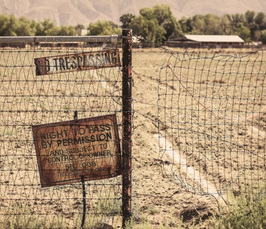Workshop: Land Ownership and Conflict in a Global Context: Transfer, Adaptation and Translation of Normative Systems
Workshop
- Start: Feb 20, 2017
- End: Feb 22, 2017
- Registration deadline: Feb 13, 2017
- Location: MPIeR
- Room: Z 01
- Contact: mckee@rg.mpg.de

For many societies, land ownership is the definitive step in freedom from slavery, exploitation and colonial domination, meaning land is one of the, if not the, most important commodity in the world. Those who have it fiercely guard it whilst those who do not have it find extralegal ways to access it. Contested land is an issue found in contemporary legal issues as well as in every other historical period and region, making it an issue pertinent globally. This workshop will address several key areas of land ownership and conflict in a global context.
The first strand of the workshop will seek to define what land ownership means in different legal systems and in different areas of the globe. Where did the notion of land ownership come from? What does it really mean to “own” land? How did the legal tradition of land ownership develop in European empires? How did this differ to local notions of land ownership (eg. Aboriginal, Caribbean family land)? Who is legally considered an "owner"? How do legal systems create the categories of "owner" and "ownership"?
The second strand will explore the idea of land registration and how this contributed to land conflict. What was behind the system of registration? Did the adoption of a property registration system modify the condition of ownership? How different registrations systems interacted with possessory practices? What systems of registration exist in different regions of the world?
The third strand will discuss the conflicts that can arise from owning land. What problems arise from owning land? How do the differing legal systems contribute to such problems? What strategies are used to resolve conflicts over land? How are community resolutions implemented in contrast to state resolution? How does this differ depending on good faith vs bad faith disputes? Which kind of proofs play decisive role in legal disputes concerning land ownership?
Ultimately, this workshop will address the interplay between different legal systems, giving special attention to the relations between state law, local normative orders, imperial and colonial regulations, etc. It will seek to establish common themes in global land conflict and propose potential solutions.
Registration needs to be completed by 13.02.2017 by sending an email to mckee@rg.mpg.de.